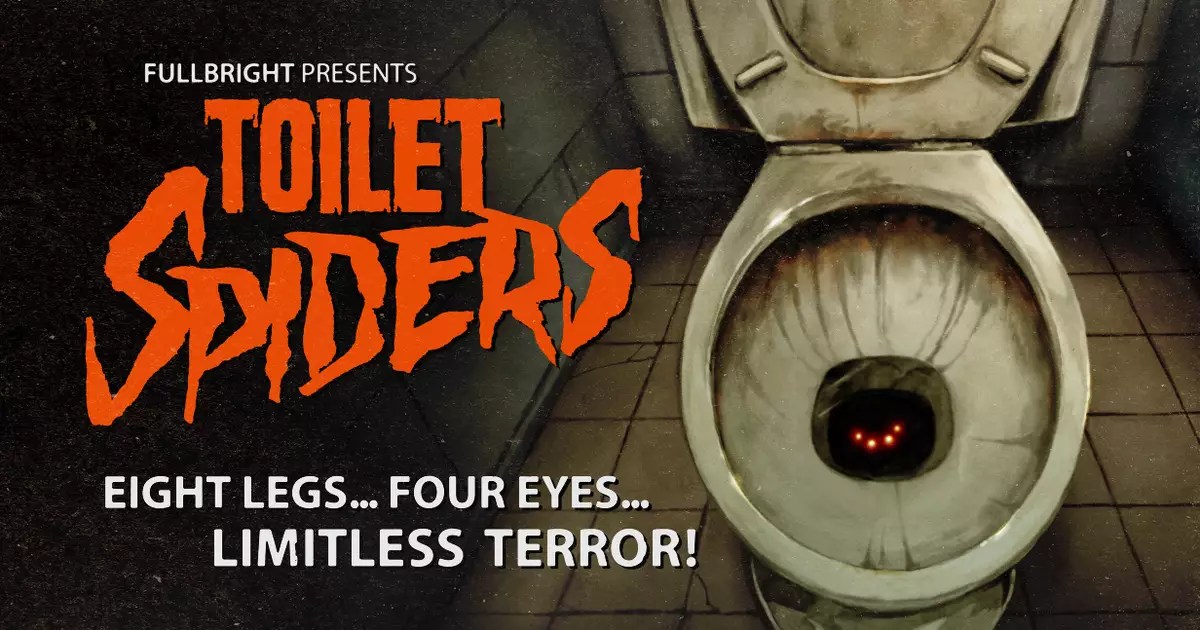Fullbright has long been recognized for their innovative narrative-driven games, with their hallmark title, *Gone Home*, crafting an intimate experience centered on exploration and the unraveling of personal stories. Their narrative style typically intertwines emotional depth with an atmosphere that evokes nostalgia and introspection. However, with the advent of *Toilet Spiders*, a significant shift occurs, as this release marks the studio’s exploration into the realms of horror and survival—albeit in a surreal, lo-fi fashion.
The player is thrust into an unsettling setting, described as an Exclusion Zone where unspeakable horrors lurk within the most mundane of environments—namely, the toilet. This juxtaposition of the familiar and the terrifying is quite jarring, setting a tone that invites both curiosity and discomfort. As this new chapter unfolds under the label of *Fullbright Presents*, it is clear that the studio aims to experiment with a different narrative approach and gameplay mechanic.
*Toilet Spiders* paints a rather peculiar picture, where the player must navigate through a series of levels while contending with oversized radioactive spiders lying in wait. This absurd scenario doubles as an unexpected backdrop to the more pressing need for resource management and risk assessment. The game beckons players to engage tactically, balancing their scavenged items against the looming threat of a spider ambush. Light bulbs, grenades, and coins become crucial—spawning not only strategy but an underlying tension that permeates every decision the player makes.
The absurdity of the premise—the idea of spiders nesting in toilets—brings forth an exploration of fear extremely relatable to many. It almost begs one to confront that gut-wrenching anxiety: what if the worst is waiting in the places we least expect? The narrative prompts players to scrutinize their surroundings and reconsider the comfort of their own homes.
While much of the conversation around *Toilet Spiders* may revolve around its playful horror mechanics, a deeper analysis reveals potential commentary on psychological states and societal issues. The game’s DNA seems to be interwoven with symbolism reminiscent of Fullbright’s previous titles. In *Gone Home*, the exploration of repressed emotions led to poignant revelations, while *Tacoma* brought forth themes of isolation in a futuristic setting.
Could *Toilet Spiders* be delving into the psyche of its creators, specifically regarding the controversy surrounding co-founder Steve Gaynor? With allegations of workplace toxicity looming large, one wonders if the portrayal of scary spiders might serve as a metaphor for larger societal fears or personal demons. The absurdity and humor inherent in the title mask a potentially richer narrative about confronting the dark corners of one’s mind and the fallout of past actions.
Dismissing *Toilet Spiders* simply as a novelty act would be a disservice to its creative ambitions. In moving towards horror, Fullbright appears to embrace an unconventional narrative style—one that juxtaposes horror with dark humor. This balance may invite players to find laughter in fear while simultaneously challenging their perceptions of safety.
As the fringes of horror become increasingly blurred with other genres, *Toilet Spiders* exemplifies a creative leap for Fullbright, signifying a potential evolution in how interactive narratives can be structured. The embrace of lo-fi aesthetics alongside exploration and survival mechanics paints a unique portrait of fear that is not merely aimed at eliciting fright, but rather encouraging introspection amidst absurdity.
*Toilet Spiders* offers an intriguing, albeit bizarre array of experiences that shifts the Fullbright legacy into new territory. As players traverse this unconventional horror landscape, they are met not only with giant arachnids but also with reflections of their own fears and the potential for catharsis through gameplay. Though it may initially seem a humorous take on horror tropes, the deeper analysis reveals a studio grappling with new directions, societal implications, and the perennial balance between fear and relief. In this strange, lo-fi world, players will find themselves confronting the unexpected in both the narrative and within themselves.


Leave a Reply